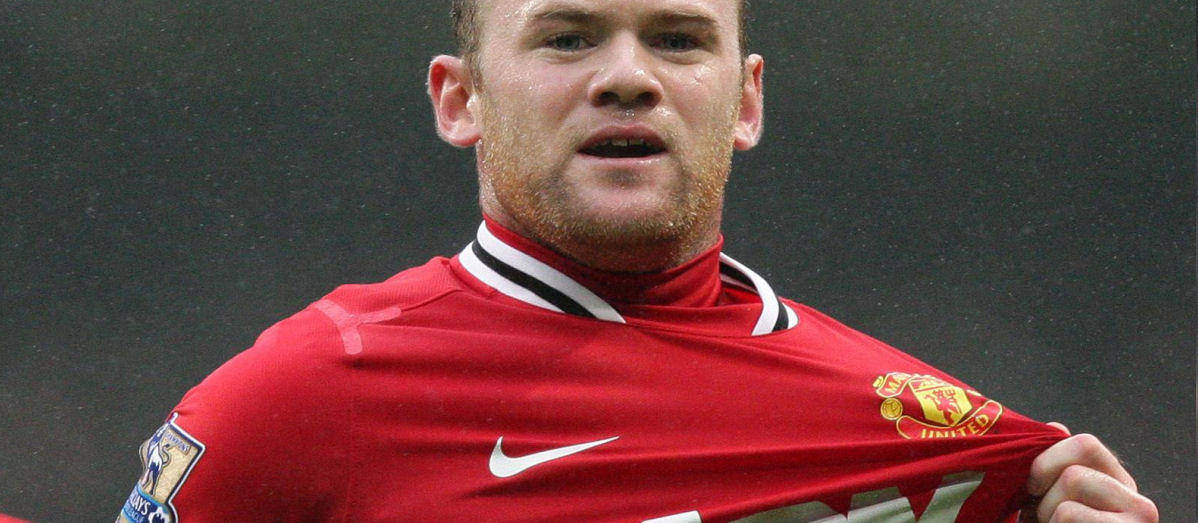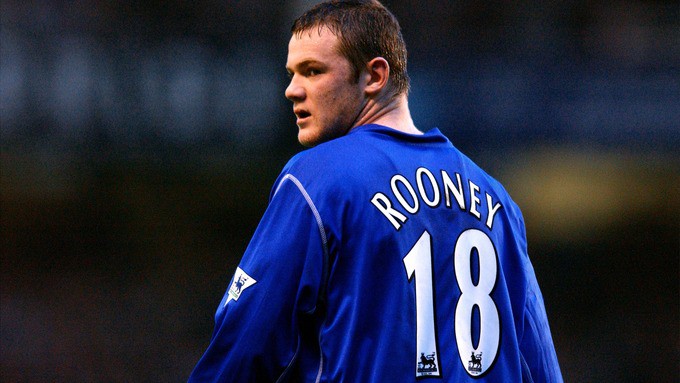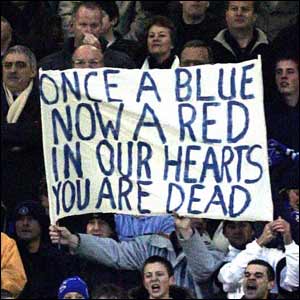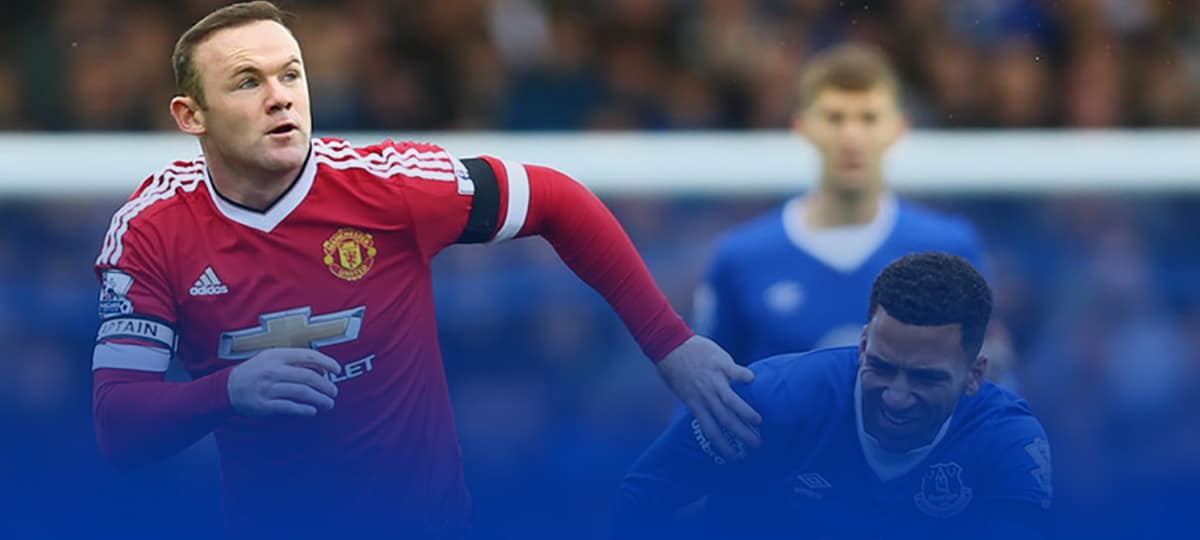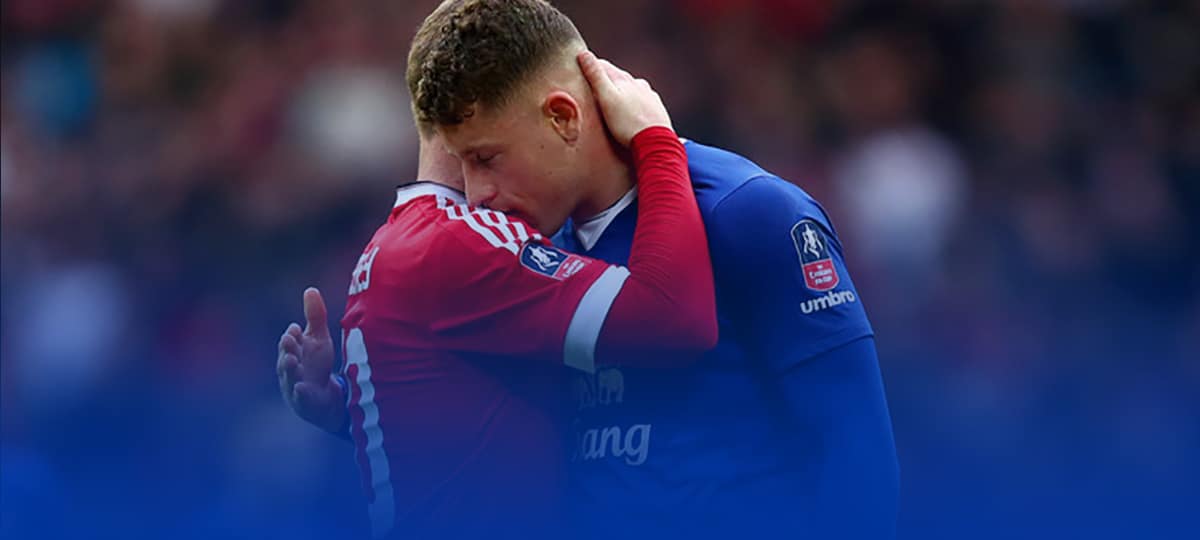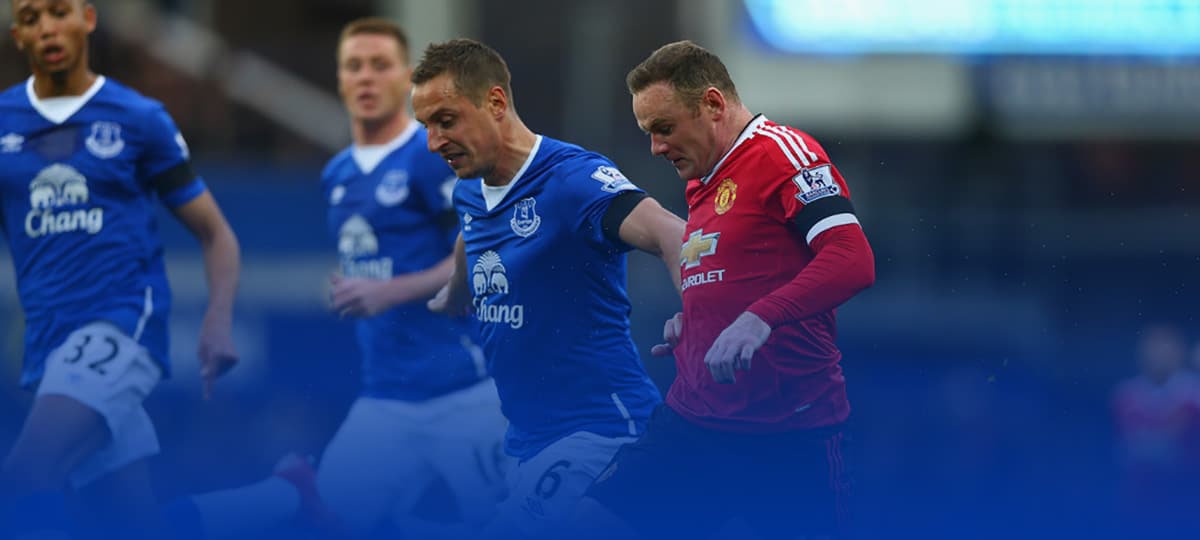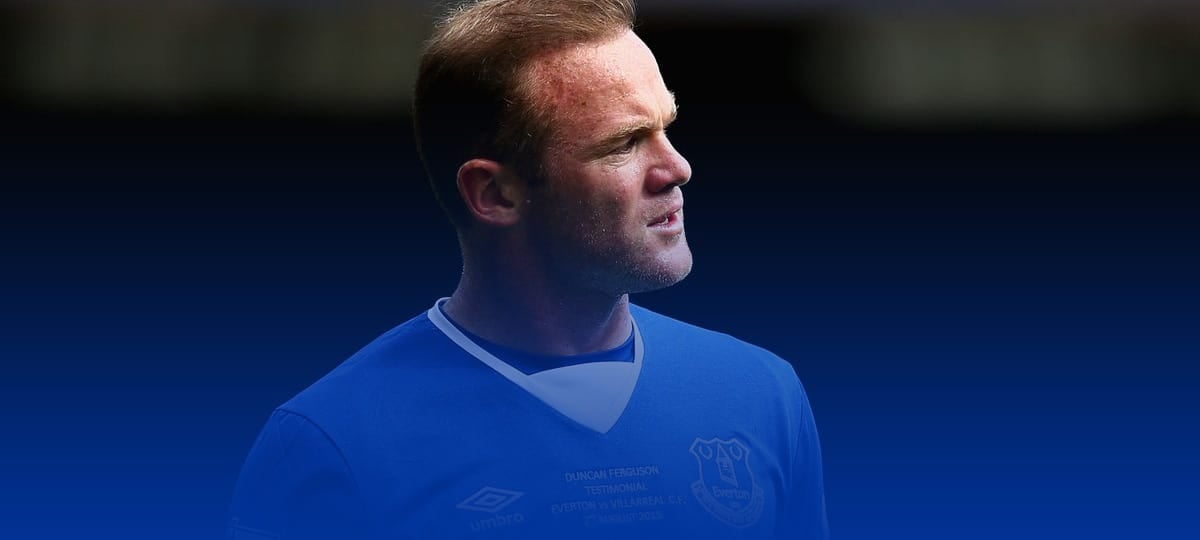Game of the Day: Everton 2-1 Arsenal, 2002 via Everton Arent We
With two minutes to go in Everton’s Premier League clash with Arsenal in October 2002, a satisfied Bill Kenwright vacated his seat and left Goodison Park. He had every right to be pleased. The Blues had held the league leaders, who had won seven and drawn two of their opening nine games, to a 1-1 draw. Arsene Wenger’s all-conquering Gunners were one day away from marking seven months since their last defeat in any competition, which was away to Juventus in the Champions League. The day before marked ten months since they had lost domestically. Everton had been tenacious, tough, and totally worth the point earned. It was, in the circumstances, a good draw.
Except it wasn’t. Because, as Kenwright headed for home, a moment of magic happened amidst the auspicious birth of a star whose Everton story may not yet be complete.
Wayne Mark Rooney was a phenomenon. That much was no secret. The Croxteth-born striker simply had football in his veins. He could either be found playing the game with friends or practising alone, volleying the ball into the sign of the now-demolished Dog & Gun on Carr Lane, not allowing the ball to touch the floor. Rooney notched a record 72 goals for the Liverpool Schoolboys in one season, and nearly a century as an eight-year-old in the Walton and Kirkdale junior league. As luck would have it, Everton scout Bob Pendleton was secretary of said league, and after noticing Rooney at the Long Lane playing fields he immediately moved to take the prodigious young boy to Bellefield. Luckier still – Rooney, like his parents, was an avowed Evertonian.
Coaches, team-mates, opponents and spectators all said the same thing – Rooney was destined for greatness. Even when playing among older boys, he was able to do things with the ball that they could only dream of, and had a cheeky audacity that fostered some spectacular goals. Even when he began training with the Everton senior side as a fresh-faced 16-year-old, the seasoned professionals Rooney was playing alongside were stunned by the range of his ability. Incredibly quick and blessed with the touch of a concert pianist, Rooney also had the physicality and bullish determination to battle it out with the best of them. On August 17 2002, he made his first Everton start, the youngest player to appear for the Blues since Joe Royle in 1966. 37 minutes into his professional career, he provided the assist for Mark Pembridge’s opener.
And so began a 15-year career that has been often thrilling, often frustrating, and – most importantly – is far from over.
Rooney had scored his first Everton goals against Wrexham in the League Cup by the time Arsenal came to town on October 19. David Moyes was settling in to his first full season at Goodison, and the Scot had endured a very mixed start. While Everton had won two and drawn two of their opening four home league fixtures, they had lost all four on the road, including a 3-0 mauling at the hands of Manchester United 12 days before the Arsenal tie. The Gunners’ monumental run had sealed their place in the history books, with victory over Sunderland making it a record 30 league games unbeaten. The record would survive a whole two years, broken by Arsenal themselves. A 49-match streak was ended in October 2004 by – you guessed it – Wayne Rooney.

In a way, then, the unstoppable force of Arsenal met the immovable object of Everton’s pristine home form. The hosts needed to find a chink in the Arsenal armour, and during the international break they found one, as David Seaman conceded directly from a corner in England’s abject 2-2 draw with Macedonia.
The key, then, was aerial bombardment. Kevin Campbell was deployed to apply the pressure while Tomasz Radzinski looked for the gaps left behind. Thomas Gravesen and Pembridge’s set pieces were fizzed into the Arsenal penalty area with the sole intention of making Seaman’s life miserable. The England stopper was clearly struggling with the crosses coming under his crossbar.
The problem was that, if Seaman looked shaky, the Everton defence was a nervous wreck. Arsenal had already scored 33 goals in their opening 12 fixtures, managing a meagre single strike against only Chelsea and Auxerre, and Everton never looked like keeping Henry, Kanu and co at bay. Eight minutes in, David Weir looked well-placed to clear an incisive pass by the Frenchman but slipped on his own six-yard line. Freddie Ljungberg reacted far quicker than a static Everton defence, and slotted home to open the scoring.
Everton needed an inspirational talisman to prevent Arsenal from establishing a cast-iron grip on the game. In Gravesen, they had one. The Danish dynamo was a one-man wrecking ball, tearing through the Arsenal midfield duo of Patrick Vieira and Gilberto Silva as well as threatening from set pieces. It was his forward-thinking that handed Everton their equaliser on 22 minutes. After receiving Radzinski’s short free-kick, Gravesen made a burst towards goal before finding Lee Carsley. Carsley’s effort found the post, but Radzinski outpaced Pascal Cygan to slot home on the rebound.
Goodison was bouncing, and Everton were channelling that positivity. Gravesen saw a fierce effort saved by Seaman before Uriah Rennie denied Radzinski a penalty, the Canadian going down under a challenge from Ashley Cole. The half-time whistle was met with sporadic boos for the Sheffield referee, but mostly warm applause for a superb recovery by the hosts.
Yet Arsenal had undergone such an impressive run of form a reason. They had a winning mentality reinforced by every passing game, and a wealth of options. Sylvain Wiltord replaced Kolo Toure, and the Frenchman saw one effort blocked on the line, while a fizzing drive went over the bar. Thierry Henry was unusually profligate when given sight of goal, while Ljungberg almost grabbed his second goal of the game with a lob that landed agonisingly wide of the post.
Everton prospects past and present were then introduced, Francis Jeffers coming on for Arsenal ten minutes before Rooney – who would make his England debut on the same night as Jeffers, five years his senior – came on for a tiring Radzinski. Arsenal’s dominance had somewhat waned. Tobias Linderoth had proved a useful replacement for Li Tie, and the Gravesen-Carsley partnership were at their bombastic best.
Kenwright left with the game seemingly concluded, bar for a moment of magic or madness. It was all set up for Rooney, days short of his 17th birthday, the £80 per week apprentice amidst seasoned professionals and bona fide international stars (Mark Pembridge was there too).
If you close your eyes, you can probably still see what happened in the 90th minute on that October afternoon at Goodison. The Wright goal-kick headed clear by Sol Campbell. Gravesen’s hopeful, lofted ball forwards. Wayne Rooney taking the ball under his spell with a deft touch. Wayne Rooney turning, 30 yards out, taking a look up at goal and realising no Arsenal player had thought to close him down. Wayne Rooney unleashing a beautiful, pinpoint, curling strike which flew past Seaman’s despairing dive, off the underside of the crossbar, and into the Park End goal.
Rooney tore away to celebrate and was mobbed by his jubilant team-mates, with around 38,000 Evertonians causing pandemonium in the stands. The 16-year-old homegrown hero had emerged in the final minute to defeat the reigning champions. It was the ultimate storybook finale. ITV commentator Clive Tyldsley greeted the goal with the now-famous utterance “Remember the name – Wayne Rooney!” As if anyone would forget.
Arsene Wenger was stunned. “He’s supposed to be 16,” the Frenchman mused afterwards. “The guy can play. He’s the best English under-20 I’ve seen since I came here.” Rooney had broken Michael Owen’s record to become the Premier League’s youngest scorer. Just as a reminder of his incredible talent, Rooney produced a carbon-copy strike in added-on time, only for it to dip onto the roof of the net.

The opening few months of his Everton career was arguably the best it got for Rooney, who scored the winner at Leeds in the Toffees’ next match, while at his boyhood club. Everton would finish 7th, and then 17th, prompting Rooney to move to Manchester United after lighting up Euro 2004. It says a lot that Rooney has become United and England’s all-time leading goalscorer, the winner of five league titles, one FA Cup, three League Cups, the Champions League, the Europa League and the Club World Cup – as well as an individual accolade haul that would trouble any trophy cabinet – and yet it feels as if he could have achieved even more.
Now it seems as if Everton are keen to bring the prodigal son home. His infamous badge-kissing exploits are less of a concern than the fact his physical ability seems to have long since peaked, and the stats don’t add up like they used to. Rooney left Everton as a boy, and would return a veteran, the glory days all lived out in United red. There are countless column inches, blogs, Twitter posts, forum posts and conversations all certain on whether Rooney would be a good addition or an expensive flop. None of us can see what is to come.
All of us, though, can remember the excitement of seeing a player destined to reach the very top appearing in Everton’s royal blue. Those who witnessed the victory over Arsenal, and Rooney’s special cameo, will never forget it. For a moment there, Goodison watched on as a 16-year-old held the world in the palm of his hand.
https://www.youtube.com/watch?v=E4dBWUjuCU0
Read Full Article
Continue reading...



